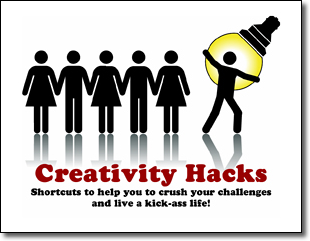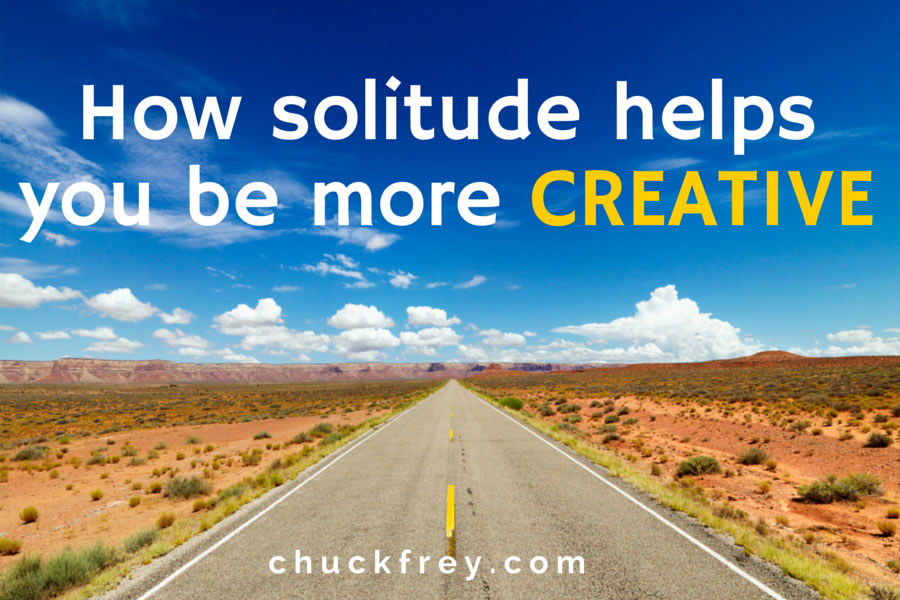Solitude can help you be more creative. According to Edward Tufte, the father of data visualization, it’s essential to seeing and perceiving the world around us more clearly – something that’s impossible to do when we’re being bombarded by a barrage of stimuli.
When we are able to see and perceive more clearly, we are able to make connections and intuitive leaps that wouldn’t be possible when we’re dealing with other distractions. Most of us know that’s intuitively true, but we don’t know why. Tufte, in a recent NPR interview, explains it more clearly than I’ve ever heard it described:
Picture the torrent of stimuli that pours in through your five senses, every waking hour of every day. To make it manageable, our brain has developed sophisticated filtering mechanisms, which do a great job of reducing the amount of information it must process. One such filter is confirmation bias:
 “The brain is really busy, and it likes to economize. And so it’s quick to be active and jump to conclusions,” Tufte explains in the NPR interview. “So if you’re told what to look for, you can’t see anything else. So one thing is to see, in a way, without words. That avoids the confirmation bias, where, you know, that once you have a oint of view, all history will back you up.”
“The brain is really busy, and it likes to economize. And so it’s quick to be active and jump to conclusions,” Tufte explains in the NPR interview. “So if you’re told what to look for, you can’t see anything else. So one thing is to see, in a way, without words. That avoids the confirmation bias, where, you know, that once you have a oint of view, all history will back you up.”
To help us meet the demands of daily living and survival, filtering serves us well. But when we need to perceive more deeply or make creative leaps of thinking, it gets in the way. Solitude slows this raging current of mental data to a trickle, enabling us to devote more of our senses – and our brain – to deeply perceiving what’s around us.
If you want to see well, you’ve got to be highly focused only on what you’re observing, and not doing anything else. Tufte tells the story of going for a long walk on his farm with a friend. They decided to walk silently, to be really present in the moment. Before long, they were able to perceive nuances of the bucolic scene that would have eluded them otherwise.
Tufte describes this form of deep seeing as “bright-eyed observing curiosity.” He recommends that creative thinkers stay in this “optical mode” of seeing as long as possible. Why? Because once you have come up with an idea, it tends to take over the mind and block out everything else. In other words, it becomes a barrier to seeing more deeply or from other perspectives.
So what are you doing to cultivate more solitude in your life?
 Creativity Hacks will inspire you to explore in new places, to make new connections, to dig deeper and discover new insights. It will help you to seek out new knowledge and sources of inspiration - so you can profit from the opportunities all around you. When you're done reading Creativity Hacks, you'll be:
Creativity Hacks will inspire you to explore in new places, to make new connections, to dig deeper and discover new insights. It will help you to seek out new knowledge and sources of inspiration - so you can profit from the opportunities all around you. When you're done reading Creativity Hacks, you'll be:
- Empowered to solve problems and tackle challenges head-on.
- Able to see ideas and opportunities everywhere.
- Able to differentiate yourself and advance your career faster.
Above all, you'll learn that creativity is a skill YOU can cultivate!

